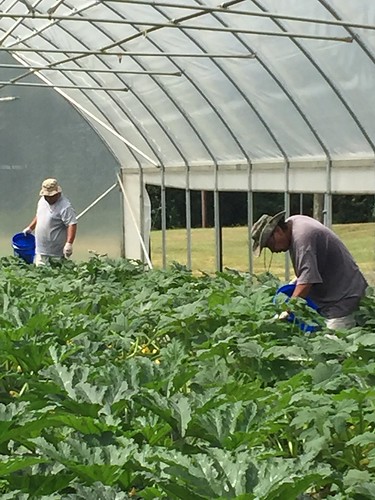
Fine words, to be sure, but how do we make it true in a department that employs almost 100,000 directly and countless more indirectly at thousands of locations across the country?
At USDA’s National Institute of Food and Agriculture (NIFA), civil rights are inherent to our mission. By promoting equal opportunity and supporting underserved groups and communities, NIFA’s programs help people improve their lives and communities.
NIFA provides funding and national leadership for research, education, and extension programs that address the nation’s agricultural challenges. NIFA-supported programs turn research into action by bringing groundbreaking discoveries from research laboratories to farms, communities, and classrooms.
NIFA’s dynamic grant programs meet the nation’s needs for research-based knowledge and its educational programs enable people to make practical decisions that can improve their lives. NIFA’s portfolio includes grants that specifically focus on meeting the needs, problems, or concerns of underserved groups and communities.
One such grant supports 4-H Youth and Families with Promise (YFP), a mentoring program run by the North Dakota State Extension Service. The program supports Native American youth in North Dakota’s Sioux County and the Standing Rock Reservation, where young people face high poverty rates, emotional challenges, and poor academic outcomes. The NIFA-supported 4-H program offers evidenced-based activities designed to strengthen academic and social skills using activities related to mentorship, leadership, community service and group project work. Their program offers video making, business development, entrepreneurship, 3D printing, beadwork, leather craft, outdoor skills, service learning, and literacy activities. As of early 2014, 187 tribal youth ages 5 to 17 are being reached through the work of 44 mentor volunteers. Schools where mentored youth attend report a 20% increase in attendance and the number of youth passing their classes has more than doubled. The program has also helped address truancy and drop out issues facing schools where the program is conducted.
Another NIFA grant to New Mexico Highlands University supports the Achieving in Research Math and Science (ARMAS) program, which is designed to increase the number of Hispanic students earning a Bachelor of Science degree. ARMAS received recognition from the White House Initiative on Educational Excellence for Hispanics. NIFA’s Hispanic serving institution’s program provided funds for the ARMAS program, which has helped more than 1,100 students since its inception in 2009.
At NIFA, Director Dr. Sonny Ramaswamy depends upon the agency’s EEO and civil rights staff to work with grant recipients and coordinate the requirements for civil rights compliance. The staff conducts civil rights compliance reviews to ensure that the agency’s programs are available, relevant, and inclusive to all Americans. NIFA staff conducts onsite compliance reviews in approximately 10 states, including 40 extension counties and state extension offices, each year. These compliance reviews are the heart of a system that determines how well benefits and services are delivered by NIFA's recipients in compliance with Title VI of the Civil Rights Act of 1964.
NIFA invests in and advances agricultural research, education and extension and seeks to make transformative discoveries that solve societal challenges.



